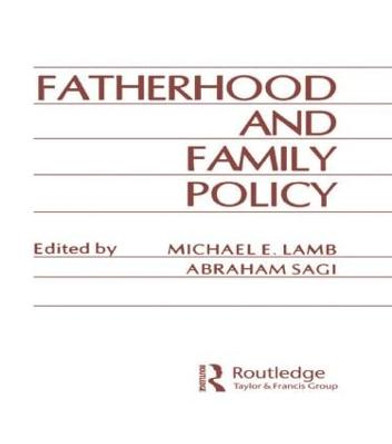The typical American family has changed dramatically since the days of "Ozzie and Harriet" and "Father Knows Best." Double-income families are now the rule, and fathers are much more involved in raising the children and cleaning house. Reactions to these changes have been diverse, ranging from grave misgivings to a sense of liberation and new possibility. Groups as diverse as Promise Keepers, the Million Man March, and Robert Bly's mythopoetic men's movement tell us that fathers are important. From the fundamentalist right to the feminist left, opinions about the changing nature of the family--and the consequent rethinking of gender roles--have been vehement, if not always very well-founded. In Family Man, sociologist Scott Coltrane brings a wealth of compelling evidence to this debate over the American family. Drawing on his own extensive research and many fascinating interviews, Coltrane explodes many of the common myths about shared parenting, provides first-hand accounts of men's and women's feelings in two-job families, and reveals some innovative solutions that couples have developed to balance job and family commitments. Readers will find an insightful discussion of precisely how and why family life has changed, what forms it may take in the future, and what new kinds of fathers may be on the horizon. The author firmly places these questions within a broad contextual framework. He provides, for instance, an illuminating history of the family that shows that, far from being a fixed structure, the family has always adapted to changing economic, social, and ideological pressures. And by examining how families operate in a variety of non-industrial societies, he demonstrates that our own notions of gender-specific work and parenting roles are culturally rather than biologically determined, and thus inherently flexible. And indeed these roles are changing. While contemporary American women still perform the bulk of domestic tasks, Family Man gives us decisive evidence that men are becoming increasingly involved in both housework and childrearing. Coltrane argues convincingly that this trend will continue. Given the current economic situation--with two-job households now the norm--and the gradual ideological shift away from restrictive gender roles, more and more couples will find it both necessary and desirable to share the workload. More important, Coltrane suggests that as fathers participate more fully in raising their children and performing traditionally female household tasks, men will themselves be transformed by the experience in profoundly positive ways and American society as a whole will move closer to true gender equity. Family Man succeeds brilliantly in bringing clarity, perspective, and above all hope to a discussion that is too often shrill, chaotic, and beset with the rhetoric of nostalgia. It shows us not only exactly where the family is today, but where it has been and what it may become.
About the AuthorScott Coltrane is Associate Professor of Sociology at the University of California, Riverside.
ReviewsColtrane...does an admirable job of weaving interview segments into the text to lend humanity and give life to his arguement....Coltrane also does an excellent job of showing empirically that there is a correlation between father involvement and women's power....A strong addition to the literature. * Contemporary Sociology *
Coltrane argues that men are providing a way out of the work-family crunch by stepping up their involvement in homemaking and parenting....Coltrane's insight that modern, highly involved fathers and child-centered parenting styles are part of a long-term cultural shift in ideas about children is important. * The Women's Review of Books *
Fatherhood in America has evolved for the better. But there is plenty of room for improvement....Coltrane and other new fatherhood advocates remain optimistic. After all, they point out, fatherhood has already undergone massive changes. And it will almost certainly continue to evolve. * Parenting Magazine *
Coltrane has produced an engagingly written and well-documented study. * Choice *
One of the most readable works I've encountered on how gender roles shape our parenting and career decisions... and how today's changing economic and social landscape is re-writing those roles. Highly recommended. * WNYC New York, National Public Radio *
Coltrane's clearly written account of his research and the literature on parenting...is certainly engrossing. The representations of various paternal voices should finally put to rest the view that men, on the whole, are unwilling or incapable of doing the full range of parental work. As Coltrane documents, men can come to think and act like nurturing fathers by doing a nurturant father's work....[This is a] good, strong book, not least because of [its] combative, qualified optimism. * Sara Ruddick, Signs: Journal of Women and Culture *
One of the most readable works I've encountered on how gender roles shape our parenting and career decisions...and how today's changing economic and social landscape is re-writing those roles. Highly recommended! * Amy Eddings, WNYC *
AwardsWinner of Named an Outstanding Academic Book of 1996 by ^IChoice^R Named an Outstanding Academic Book of 1996 by the American Library Association.
Book InformationISBN 9780195119091
Author Scott ColtraneFormat Paperback
Page Count 304
Imprint Oxford University Press IncPublisher Oxford University Press Inc
Weight(grams) 345g
Dimensions(mm) 133mm * 200mm * 19mm









